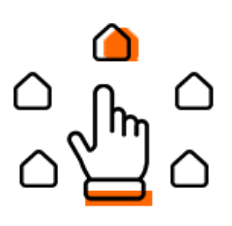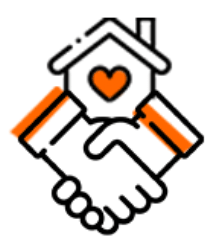Owning a second home in Switzerland, whether it’s a holiday chalet in the Alps or a pied-à-terre in the city, is a dream for many. However, financing this dream requires careful planning, particularly when it comes to securing a second home mortgage.

What is a Second Home Mortgage?
A second home mortgage is a loan specifically designed to finance the purchase of a secondary residence. Unlike a primary home mortgage, this type of mortgage is used for properties that are not your main residence. In Switzerland, second homes are typically used as vacation homes, rental properties, or simply as an investment.
Differences Between a Primary and Second Home Mortgage
While the basic principles of securing a mortgage remain the same, there are notable differences when it comes to second home mortgages:
- Higher Interest Rates: Lenders often charge higher interest rates for second home mortgages due to the increased risk associated with non-primary residences.
- Higher Down Payment Requirements: Typically, a higher down payment is required for a second home—often around 30-40% compared to 20% for a primary residence.
- Stricter Lending Criteria: Lenders may impose stricter criteria, including higher income requirements and more stringent credit checks.
Why Consider a Second Home in Switzerland?
Switzerland’s stable economy, stunning landscapes, and high quality of life make it an attractive location for purchasing a second home. Whether you’re looking for a mountain retreat or a city escape, owning a second property in Switzerland can be a great investment.
Benefits of Owning a Second Home in Switzerland
- Investment Potential: Swiss real estate has historically shown consistent value appreciation, making it a sound investment.
- Lifestyle Upgrade: Enjoy the flexibility of having a home in one of the world’s most beautiful countries, with easy access to ski resorts, hiking trails, and cultural centers.
- Rental Income: Renting out your second home when not in use can generate additional income, helping to offset mortgage costs.
Considerations Before Buying a Second Home
Before diving into the Swiss property market, it’s crucial to consider the following:
- Affordability: Can you comfortably afford the mortgage payments in addition to your primary residence expenses?
- Market Conditions: Understanding the local real estate market is essential for making a sound investment.
- Tax Implications: Owning a second home in Switzerland comes with specific tax obligations, which vary depending on the canton.
How to Qualify for a Second Home Mortgage in Switzerland
Qualifying for a second home mortgage in Switzerland involves meeting specific criteria that may differ from those for a primary home mortgage.
Down Payment Requirements
As mentioned earlier, the down payment for a second home mortgage is typically higher, ranging from 30-40% of the property’s value. This is because lenders perceive second homes as higher-risk investments.
Income and Debt Considerations
Lenders will assess your financial stability by evaluating your income, existing debts, and overall financial health. Generally, your total monthly debt payments, including the second home mortgage, should not exceed one-third of your gross monthly income.
Property Valuation
A professional appraisal of the property is necessary to determine its market value, which will impact the amount you can borrow. Lenders will finance a percentage of this appraised value, typically up to 60-70%.
Types of Second Home Mortgages Available
Switzerland offers various mortgage options that cater to different financial needs and risk appetites.
Fixed-Rate Mortgage
A fixed-rate mortgage offers stability, with a set interest rate for the entire term of the loan. This is ideal for those who prefer predictability in their monthly payments.
Variable-Rate Mortgage
A variable-rate mortgage has an interest rate that fluctuates with the market. This option can be beneficial if you anticipate interest rates will decrease, but it carries more risk if rates rise.
Saron Mortgage
The Saron (Swiss Average Rate Overnight) mortgage is a type of variable-rate mortgage tied to the Saron rate, which is influenced by the Swiss National Bank’s monetary policy. It’s suitable for those with a higher risk tolerance.
Libor Mortgage
Although being phased out, the Libor mortgage was historically popular. It’s being replaced by the Saron mortgage, but understanding it is essential if you have or are considering older mortgage products.
Steps to Secure a Second Home Mortgage
1. Assess Your Financial Situation
Before approaching lenders, conduct a thorough review of your financial situation. Ensure you have enough savings for the down payment and can manage additional monthly payments without strain.
2. Research and Compare Lenders
Different lenders offer various terms and interest rates for second home mortgages. Use a comparison tool, like FastHypo, to find the best mortgage deals tailored to your needs.
3. Get a Pre-Approval
Obtaining a mortgage pre-approval will give you a clear idea of how much you can afford and show sellers that you’re a serious buyer.
4. Choose the Right Mortgage Type
Select the mortgage type that best suits your financial situation and risk tolerance. Consider consulting with a mortgage advisor to make an informed decision.
5. Complete the Application Process
Once you’ve chosen a lender, complete the application process by providing the necessary documentation, including proof of income, assets, and property details.
6. Finalize the Mortgage
After approval, review the mortgage terms carefully before signing the contract. Ensure that all terms align with your expectations and financial capabilities.
Tax Implications of Owning a Second Home in Switzerland
Owning a second home in Switzerland has specific tax implications, which vary depending on the property’s location and use.
Wealth Tax
Second homes contribute to your overall wealth, which is subject to wealth tax in Switzerland. The taxable value is based on the property’s market value or a reduced taxable value depending on the canton.
Income Tax on Imputed Rental Value
If you’re not renting out your second home, Swiss tax authorities may calculate an imputed rental value, which is added to your taxable income. This can significantly affect your income tax obligations.
Capital Gains Tax
If you decide to sell your second home, any profit made is subject to capital gains tax. The rate varies by canton and how long you’ve owned the property.
Tax Deductions
Certain expenses related to your second home, such as mortgage interest and maintenance costs, may be deductible from your taxable income.
Renting Out Your Second Home
If you plan to rent out your second home, there are additional factors to consider.
Rental Income
Rental income from your second home is taxable in Switzerland. Ensure that the rental yield covers the mortgage payments, maintenance costs, and taxes.
Property Management
Managing a rental property, especially if it’s in a different location from your primary residence, can be challenging. Consider hiring a property management company to handle tenant relations, maintenance, and legal issues.
Legal Considerations
Familiarize yourself with local laws regarding short-term rentals, especially if you plan to use platforms like Airbnb. Some cantons have strict regulations on holiday rentals.
Common Challenges and How to Overcome Them
Meeting the Higher Down Payment
If the higher down payment is a challenge, consider saving more aggressively, or look into financing options that may allow for a lower initial payment, though these are rare and may come with higher interest rates.
Managing Dual Property Expenses
Owning two properties means dealing with double the expenses, from utilities to maintenance. Budget carefully and consider creating a contingency fund for unexpected costs.
Navigating Complex Tax Laws
Swiss tax laws can be complex, especially when dealing with second homes. Consulting with a tax advisor familiar with Swiss real estate can help you navigate these complexities and optimize your tax situation.
Conclusion
Securing a second home mortgage in Switzerland is a significant financial commitment, but with careful planning and expert advice, it can be a rewarding investment. By understanding the differences between primary and second home mortgages, meeting the lender’s criteria, and being aware of the tax implications, you can make an informed decision that aligns with your financial goals.
Whether you’re buying a second home for personal use, rental income, or investment purposes, this comprehensive guide equips you with the knowledge to navigate the Swiss mortgage landscape effectively.
For personalized mortgage advice and to compare the best second home mortgage offers, visit FastHypo and start your journey towards owning your dream Swiss property today.











